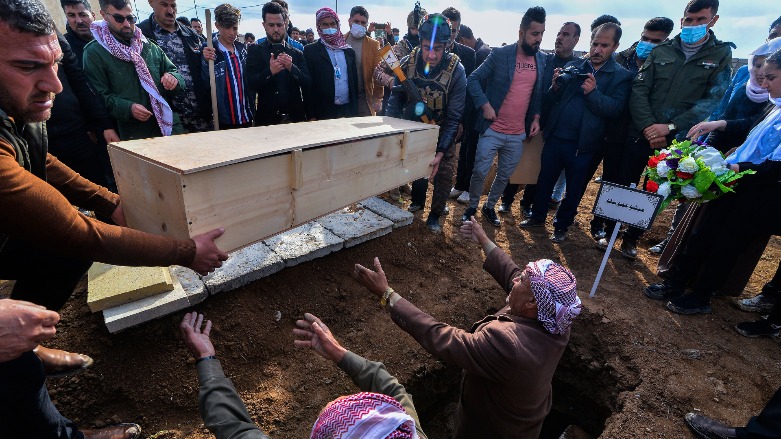US highlights ISIS danger in Iraq and Syria in report on preventing genocide

WASHINGTON, DC (Kurdistan 24) – On Monday, the State Department released its annual report on US efforts to prevent genocide and other atrocities in areas of critical concern. The 2021 report included a summary of what the US has done over the past year in six countries—including Iraq and Syria—where it has worked actively to counter the threat posed by ISIS.
ISIS Genocide
“The US government is committed to combating ISIS and the risk it poses to civilians, particularly in Iraq and Syria,” the report affirmed.
The State Department “has provided nearly $9 million to the UN Investigative Team to Promote Accountability for Crimes Committed by Da’esh/ISIL”—known as UNITAD— which “funds organizations to collect evidence and supports the Iraqi Justice System to prosecute ISIS members,” it explained.
The Kurdistan Regional Government (KRG) has worked closely with UNITAD, which has praised the KRG’s “excellent support” in establishing a special criminal court to try ISIS members for war crimes.
Read More: UNITAD chief says there’s ‘excellent support’ from KRG on ISIS war crimes court
Already in 2016, the US determined that ISIS was responsible for genocide against groups in areas of Iraq and Syria which it controlled, including against “Yezidis, Christians, and Shia Muslims,” as well as other atrocities “against Sunni Muslims, Kurds, and other minorities.”
Crimes of the Syrian Regime
The report also stated that the US “is committed to accountability for atrocities committed by the Assad regime, some of which amount to war crimes and crimes against humanity.”
It noted that the State Department “has provided over $2.3 million to the UN International, Impartial, and Independent Mechanism for Syria, and supports the UN Commission of inquiry and other investigations, including on chemical weapons use.”
Over the past year, the US has “designated over 100 individuals and entities connected to the Assad regime under Syria and Syria-related sanctions authorities,” the report said.
The Elie Wiesel Genocide and Atrocities Prevention Act
The report was mandated by bipartisan legislation, which was approved n 2018, and is known as the Elie Wiesel Genocide and Atrocities Prevention Act. It aims to strengthen US efforts to prevent and mitigate genocide—rather than just respond to atrocities after they have been committed.
Elie Wiesel, a Romanian-American and Holocaust survivor, was renowned for his books on the Nazi genocide of the Jews, as well as other horrors, including the Armenian genocide. Wiesel was awarded the Nobel Peace Prize in 1986 for those efforts.
The legislation aims to counter a common human tendency to act only after the fact. Such examples abound. One recent example is the collapse of the 13 story condominium in Surfside, Florida. The residents had ample warning that the building needed substantial repairs. But the repairs were expensive; the condominium board dithered; and action was repeatedly postponed.
Only now—with over 100 people dead or missing in the collapsed tower—are residents of other buildings, with potentially similar problems, paying attention to their safety.
As The New York Times reported, in an article titled, “‘Should We Sell?’ Safety Fears Rattle Florida's Hot Condo Market,” the owners of condominiums were often “more willing to plow money into aesthetic improvements and new amenities than structural improvements that were costly, intrusive to make and were not entirely obvious to the naked eye.”
Governments can have the same attitude toward national security dangers: they do not act until it is very late, even too late. It is that kind of mentality that the Elie Wiesel Genocide and Atrocities Prevention Act aims to overcome.
